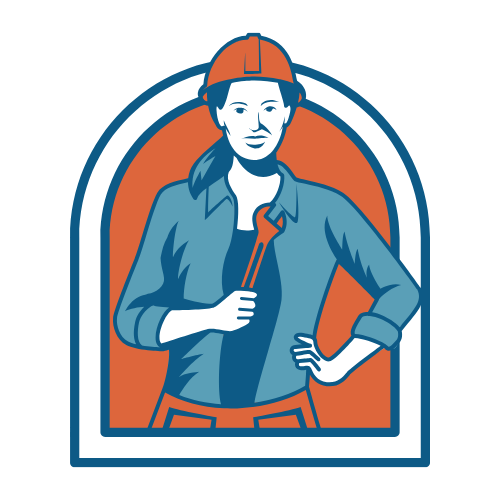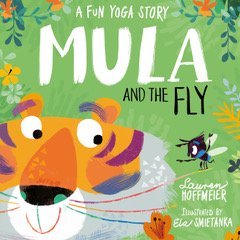Finding Success by Tapping Into the Fun Zone
Recently, I went roller skating with my friend Tommy. We've known each other since we were kids, singing our hearts out in the children’s chorus of the Dicapo Opera Theater, and as it turned out, Tommy had never been roller skating before. Watching him take to the rink was both endearing and inspiring. There was a sense of terror as he clung to the rails for dear life, but there was also pure magic in the moments when he started to find his groove.
The roller rink was alive with energy, filled with people of all ages ready to have fun! Tommy noticed the fearless attitude of the kids on the floor. They zipped around without a care, their confidence building with every glide. “Who cares if I fall? I’m just gonna go for it!” That mindset seemed to be their secret weapon. With that sense of fearless fun, they spun faster dancing to ABBA, carving figure eights like tiny, disco-inspired Olympians. (And yes, they were wearing knee pads—safety first, my friends!)
This experience got me thinking about writing. When we write, we need that same fearless fun. That sense of “who cares—I’m just gonna go for it” unleashes creativity and lets ideas flow naturally. Writing becomes a joyful dance instead of a struggle.
It makes sense, especially when writing for kids. To connect with young readers, we need to tap into our own inner child—the part of us that’s brave, curious, and unafraid of falling down. Be a kid at the writing desk. Write with adventure, magic, and a touch of mischief. Let go of perfection, and let your imagination take the lead.
The next time you sit down to write, channel the child at heart. Have fun, take risks, and see where the ride takes you. Because when you’re in the fun zone, success isn’t far behind.
The roller rink was alive with energy, filled with people of all ages ready to have fun! Tommy noticed the fearless attitude of the kids on the floor. They zipped around without a care, their confidence building with every glide. “Who cares if I fall? I’m just gonna go for it!” That mindset seemed to be their secret weapon. With that sense of fearless fun, they spun faster dancing to ABBA, carving figure eights like tiny, disco-inspired Olympians. (And yes, they were wearing knee pads—safety first, my friends!)
This experience got me thinking about writing. When we write, we need that same fearless fun. That sense of “who cares—I’m just gonna go for it” unleashes creativity and lets ideas flow naturally. Writing becomes a joyful dance instead of a struggle.
Mark Twain famously said: There is no such thing as a new idea.
While our ideas feel unique, they’re shaped by our interactions with the world. These interactions make our creative experiences both deeply personal and universally shared.
{…}
This truth leads us to an important realization: an original idea doesn’t matter.
So the question is… What does this idea mean to you?
As a writer of children’s stories , my essential tools aren’t found at an office supply store or in the latest journaling app. Sure, pen and paper are part of the job, but what I rely on to spark my creativity are the experiences that fill my soul—those little joys I get out of belting a song in the shower, the thrill of auditioning, or the magic of watching a story come alive on stage.
Children’s books inspire magic. That’s why we read them well into our old age. Just like a warm cup of cocoa or a feel-good movie, we cling to the simple elegance of a picture book because of the effortless magic they present no matter how old we may be. As a children’s writer, asking for magic over and over again is a big ask, but that’s the job. So how do you do it?
When you find yourself stuck in a rut, that’s your signal to shift. Trust your gut—it’s trying to tell you something: this isn’t working—do something else.
A picture book is a treasure. It’s the beginning of a lifelong relationship that only gets better with age. As I sat down to contemplate which 20 of the many picture books impacted my upbringing, I was confronted with the agony of choosing. In the end, for the purposes of this blog, there was no rhyme or reason to my selection of these 20 books, as I couldn’t rightfully decide. I just had to go with my gut, letting you in on the childhood of an American kid who grew up in New York City in the early '90s.
Let's get real: perfection is nothing more than a mirage shimmering in the distance. No matter how much we strive for it, we'll forever be chasing an unattainable dream.
Every person, no matter how old they are, has had that "aha" moment before dozing off. It’s a clear moment in our daily lives when the brain disengages from the rigorous flow of busy activity and routine. When the prefrontal cortex slows down (an area of the brain which includes areas of logic and reason). This is a time when the brain makes space for ideas to flow without judgment, intuition takes over, and creative sparks fly. This is the Theta brainwave state.
As writers, I guess you could say that we’re idea people. However, the distractions of everyday life can easily bog us down. But we’ve got to show up and kick those distractions in the butt. And a key way to do just that is by getting comfortable with solitude.
As a children's author, it's crucial for me to develop characters that are interesting, engaging, and relatable to young readers. Drawing on skills learned in the theater helps me infuse an atmosphere of fun and play into the process - another essential quality for children’s stories.
One of the biggest pieces of advice I can give to aspiring authors is that your work has to be something you love because you'll be working at it pretty much all of the time. Fortunately, I love what I do because I learn something new about it every day, which keeps things interesting. And my biggest teachers are the kids.
Did you know that the characters in my ‘Mula and the Fly’ children’s series were named after the chakras? Chakras (or “wheels of energy”) are points within the body that go from the base of the spine to the crown of the head.














Why do we so often save gratitude for the very end of the year? Thanksgiving kicks off the holiday season, gathering us around the dinner table sparking the notion of giving thanks, as the leaves turn quietly from green, to red, to brown, and then to dust. Maybe this being the designated time for gratitude makes the very idea of giving thanks feel more like a chore than a joy as we search for something meaningful to say. But what if we took a deeper dive into this notion of “Gratitude”?